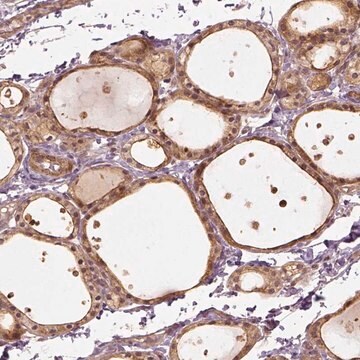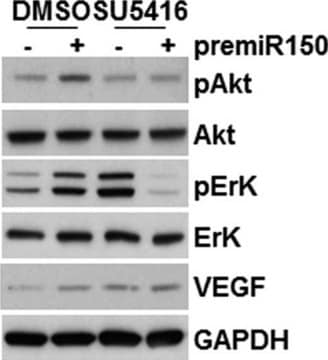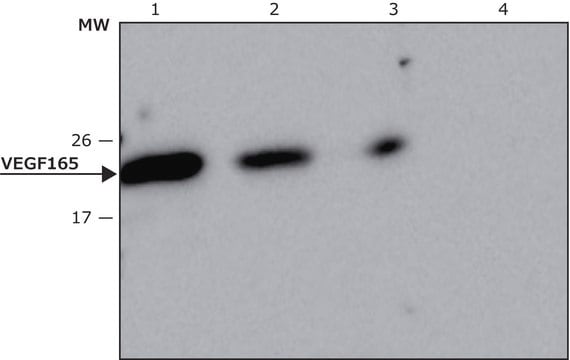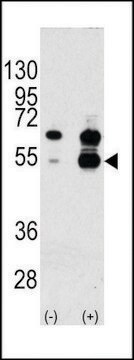05-443
Anti-VEGF Antibody, clone JH
clone JH, Upstate®, from mouse
Synonyme(s) :
Vascular permeability factor, vascular endothelial growth factor, vascular endothelial growth factor A, vascular endothelial growth factor isoform VEGF165
About This Item
Produits recommandés
Source biologique
mouse
Niveau de qualité
100
400
Forme d'anticorps
purified immunoglobulin
Type de produit anticorps
primary antibodies
Clone
JH, monoclonal
Espèces réactives
rat, mouse, rabbit, human
Fabricant/nom de marque
Upstate®
Technique(s)
immunohistochemistry: suitable (paraffin)
Isotype
IgG1κ
Adéquation
not suitable for Western blot
Numéro d'accès NCBI
Numéro d'accès UniProt
Conditions d'expédition
dry ice
Modification post-traductionnelle de la cible
unmodified
Informations sur le gène
human ... VEGFA(7422)
Description générale
Spécificité
Immunogène
Application
Immunoprecipitation: 2 µg of this antibody has been reported to immunoprecipitate VEGF from 1 mg of protein lysate.
Signaling
Growth Factors & Receptors
Qualité
Description de la cible
Forme physique
Stockage et stabilité
Remarque sur l'analyse
Expressed in most tissue, including Pancreas, Kidney, Adenocarcinoma.
Autres remarques
Informations légales
Clause de non-responsabilité
Vous ne trouvez pas le bon produit ?
Essayez notre Outil de sélection de produits.
Code de la classe de stockage
12 - Non Combustible Liquids
Classe de danger pour l'eau (WGK)
WGK 2
Point d'éclair (°F)
Not applicable
Point d'éclair (°C)
Not applicable
Certificats d'analyse (COA)
Recherchez un Certificats d'analyse (COA) en saisissant le numéro de lot du produit. Les numéros de lot figurent sur l'étiquette du produit après les mots "Lot" ou "Batch".
Déjà en possession de ce produit ?
Retrouvez la documentation relative aux produits que vous avez récemment achetés dans la Bibliothèque de documents.
Notre équipe de scientifiques dispose d'une expérience dans tous les secteurs de la recherche, notamment en sciences de la vie, science des matériaux, synthèse chimique, chromatographie, analyse et dans de nombreux autres domaines..
Contacter notre Service technique








